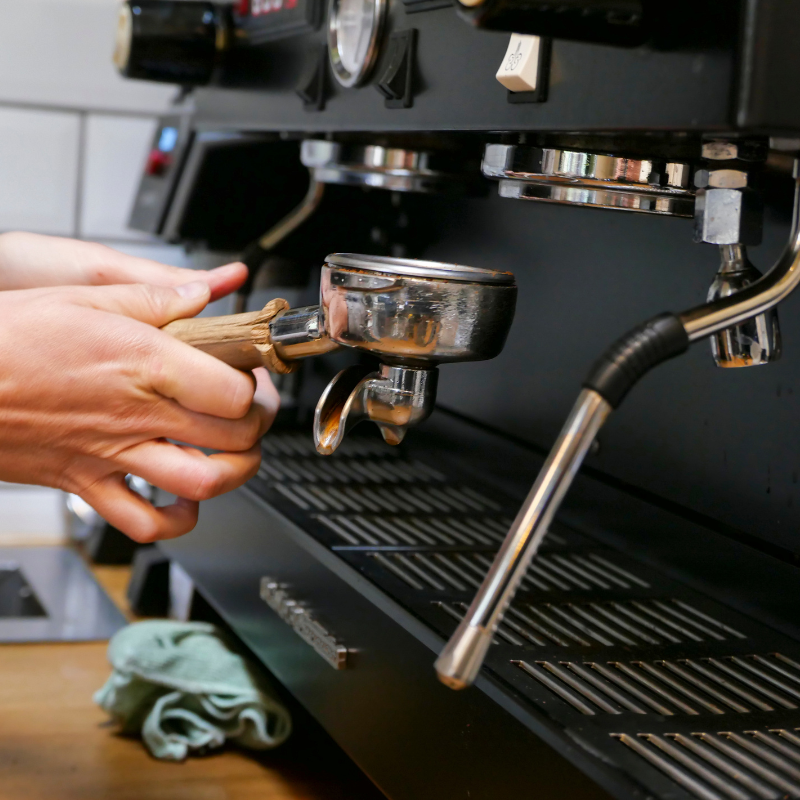- 5-Star Rated on Google
- Nationwide Support
- Unrivalled Expertise

Commercial coffee machine: Designed to be worked hard. Commercial coffee machines serve busy cafés, offices, hotels, restaurants and can easily see 100-300+ cups per day. Typically a commercial machine has large boilers, multiple group heads and fast heat-up times.
Domestic machines: Designed for low-volume use. 1 to 5 cups per day. Domestic machines are styled to look great at home, but often lack the “high quality” performance when worked hard over long periods.
Commercial machines: Built to last. Heavy, solid construction from stainless steel, brass components and commercial-grade internals. Designed for long-term reliability with servicing, rather than regular replacement.
Domestic machines: Lighter, easier to use. Consumer-friendly, and often with plastic trim and fittings. Built with compact boilers and mechanics to keep the weight down and easier to store.
Commercial machines: Ready for speed. Commercial-grade fast heat-up times with multiple group heads and dual boilers that allow brewing and steaming at the same time. Some high-volume machines brew hundreds of cups per day.
Domestic machines: Single-boiler, simple mechanics. Takes time to heat up, especially if steaming milk and pulling espresso shots in sequence.
Commercial coffee machine: Precision & Programmability. Commercial machines usually offer greater control over temperature, pressure, pre-infusion and shot timing. Many also have programmable/auto features to help maximise quality even with low training.
Domestic machines: Easy to use. Ranges from manual espresso machines all the way to fully-automatic bean-to-cup units.
Commercial machine: Cleaning is a priority. Daily cleaning, descaling, and part replacements as needed are important to commercial coffee machine servicing. Machines often come with service contracts to ensure regular servicing by qualified engineers.
Domestic machines: Easier to clean. Many modern machines have auto-reminder for descaling and basic cleaning, and the process is much simpler.
Commercial machine: Requires a footprint. Commercial machines are large and heavy. Plumbed in with dedicated water and drain connections and need space and a good power supply.
Domestic machines: Portable, and plug and play. Designed for home kitchens or small office desks with in-built water tanks that are easy to store.
Commercial coffee machine: Higher initial outlay. Commercial coffee machines start at several thousand pounds and can reach tens of thousands. Price pays off with capacity, durability and ROI for businesses.
Domestic: More affordable. Priced between tens to a few hundred pounds, but a less powerful and lower-output machine in return.
If you’re a business or looking for a high-volume machine for an office or hospitality environment, a commercial coffee machine is a smart investment with a higher capacity, more consistency and a better lifespan. Don’t forget to consider commercial coffee machine servicing to keep your machine performing at its best!
If you’re a domestic user or enjoy your coffee at home casually or as a hobby, a home machine will be easier to maintain and use than a commercial-grade one.
If you’d like a hand getting the most from your commercial coffee machine, get in touch with Field Service Solutions. We specialise in commercial coffee machine servicing to keep your business and workers caffeinated and ready to go.